This article was co-authored by Mohiba Tareen, MD and by wikiHow staff writer, Jennifer Mueller, JD. Mohiba Tareen is a board certified Dermatologist and the founder of Tareen Dermatology located in Roseville, Maplewood and Faribault, Minnesota. Dr. Tareen completed medical school at the University of Michigan in Ann Arbor, where she was inducted into the prestigious Alpha Omega Alpha honor society. While a dermatology resident at Columbia University in New York City, she won the Conrad Stritzler award of the New York Dermatologic Society and was published in The New England Journal of Medicine. Dr. Tareen then completed a procedural fellowship which focused on dermatologic surgery, laser, and cosmetic dermatology.
There are 9 references cited in this article, which can be found at the bottom of the page.
wikiHow marks an article as reader-approved once it receives enough positive feedback. In this case, 100% of readers who voted found the article helpful, earning it our reader-approved status.
This article has been viewed 183,522 times.
A sunburn can be painful and embarrassing—especially on your face. The pain and embarrassment are temporary, though, since most sunburns heal after a week or so.[1] The damage to your skin, however, is longer lasting, which is why it's so important to care for your sunburned skin and treat it properly. Here, we've gathered some of the most important tips you can use to treat your sunburned face, from the moment you realize you're burned until the symptoms go away, as well as what you can do to keep it from happening again.
Steps
Expert Q&A
Did you know you can get premium answers for this article?
Unlock premium answers by supporting wikiHow
-
QuestionHow can I quickly heal my sunburn?
 Mohiba Tareen, MDMohiba Tareen is a board certified Dermatologist and the founder of Tareen Dermatology located in Roseville, Maplewood and Faribault, Minnesota. Dr. Tareen completed medical school at the University of Michigan in Ann Arbor, where she was inducted into the prestigious Alpha Omega Alpha honor society. While a dermatology resident at Columbia University in New York City, she won the Conrad Stritzler award of the New York Dermatologic Society and was published in The New England Journal of Medicine. Dr. Tareen then completed a procedural fellowship which focused on dermatologic surgery, laser, and cosmetic dermatology.
Mohiba Tareen, MDMohiba Tareen is a board certified Dermatologist and the founder of Tareen Dermatology located in Roseville, Maplewood and Faribault, Minnesota. Dr. Tareen completed medical school at the University of Michigan in Ann Arbor, where she was inducted into the prestigious Alpha Omega Alpha honor society. While a dermatology resident at Columbia University in New York City, she won the Conrad Stritzler award of the New York Dermatologic Society and was published in The New England Journal of Medicine. Dr. Tareen then completed a procedural fellowship which focused on dermatologic surgery, laser, and cosmetic dermatology.
FAAD Board Certified Dermatologist
-
QuestionWhat if I've already started removing peeling skin? How can I prevent permanent scarring?
 Jennifer Boidy, RNJennifer Boidy is a Registered Nurse in Maryland. She received her Associate of Science in Nursing from Carroll Community College in 2012.
Jennifer Boidy, RNJennifer Boidy is a Registered Nurse in Maryland. She received her Associate of Science in Nursing from Carroll Community College in 2012.
Registered Nurse First, resist peeling away any more skin. Apply antibacterial ointment to the area where you removed the peeling skin and be sure to keep the area well moisturized. Stay well hydrated and avoid further sun exposure during the healing process. If you have concerns about permanent scarring, consult with a doctor.
First, resist peeling away any more skin. Apply antibacterial ointment to the area where you removed the peeling skin and be sure to keep the area well moisturized. Stay well hydrated and avoid further sun exposure during the healing process. If you have concerns about permanent scarring, consult with a doctor. -
QuestionI already peeled the blisters what should I do?
 Jennifer Boidy, RNJennifer Boidy is a Registered Nurse in Maryland. She received her Associate of Science in Nursing from Carroll Community College in 2012.
Jennifer Boidy, RNJennifer Boidy is a Registered Nurse in Maryland. She received her Associate of Science in Nursing from Carroll Community College in 2012.
Registered Nurse Cleanse the area with clean water only, apply some petroleum jelly or antibacterial ointment to the blister, and then apply a nonstick bandage. Reapply ointment and bandage daily until healed. If during the healing process you notice signs of infection, call your doctor. Signs of infection include: increased pain, swelling, redness or warmth in the area, drainage of pus, red streaks extending away from the site, and fever.
Cleanse the area with clean water only, apply some petroleum jelly or antibacterial ointment to the blister, and then apply a nonstick bandage. Reapply ointment and bandage daily until healed. If during the healing process you notice signs of infection, call your doctor. Signs of infection include: increased pain, swelling, redness or warmth in the area, drainage of pus, red streaks extending away from the site, and fever.
Warnings
- If you experience nausea, dizziness, headache, fever and chills, or facial swelling, seek medical attention immediately. You might have heatstroke.[23]⧼thumbs_response⧽
- Sunburn might seem like a temporary problem that goes away relatively quickly, but having just 5 sunburns over the course of your life doubles your risk of developing skin cancer.[24]⧼thumbs_response⧽
- Check the expiration date on your sunscreen! Most sunscreens have a shelf-life of 2-3 years, so if you didn't buy yours recently, it may no longer be effective.[25]⧼thumbs_response⧽
- Always protect your skin from the sun when you're outside. Even a slight tan is skin damage, which can lead to premature wrinkles and increase your risk of skin cancer.[26]⧼thumbs_response⧽
References
- ↑ https://www.skincancer.org/blog/why-does-my-skin-peel-when-i-get-sunburned/
- ↑ https://www.skincancer.org/risk-factors/sunburn/
- ↑ https://medlineplus.gov/ency/article/003227.htm
- ↑ https://www.aad.org/public/everyday-care/injured-skin/burns/treat-sunburn
- ↑ https://www.beaumont.org/health-wellness/blogs/5-ways-to-relieve-sunburn
- ↑ https://www.aad.org/public/everyday-care/injured-skin/burns/treat-sunburn
- ↑ Mohiba Tareen, MD. FAAD Board Certified Dermatologist. Expert Interview. 26 March 2020.
- ↑ https://www.skincancer.org/risk-factors/sunburn/
- ↑ https://medlineplus.gov/ency/article/003227.htm
- ↑ https://www.aad.org/public/everyday-care/injured-skin/burns/treat-sunburn
- ↑ Mohiba Tareen, MD. FAAD Board Certified Dermatologist. Expert Interview. 26 March 2020.
- ↑ https://www.skincancer.org/risk-factors/sunburn/
- ↑ Mohiba Tareen, MD. FAAD Board Certified Dermatologist. Expert Interview. 26 March 2020.
- ↑ https://www.skincancer.org/blog/why-does-my-skin-peel-when-i-get-sunburned/
- ↑ https://my.clevelandclinic.org/health/symptoms/17832-peeling-skin
- ↑ https://www.mayoclinic.org/diseases-conditions/sunburn/diagnosis-treatment/drc-20355928
- ↑ https://www.mayoclinic.org/diseases-conditions/sunburn/diagnosis-treatment/drc-20355928
- ↑ https://www.aad.org/public/everyday-care/injured-skin/burns/treat-sunburn
- ↑ https://medlineplus.gov/ency/article/003227.htm
- ↑ https://medlineplus.gov/ency/article/003227.htm
- ↑ https://www.skincancer.org/risk-factors/sunburn/
- ↑ https://www.mayoclinic.org/diseases-conditions/sunburn/diagnosis-treatment/drc-20355928
- ↑ https://medlineplus.gov/ency/article/003227.htm
- ↑ https://www.skincancer.org/risk-factors/sunburn/
- ↑ https://www.nhs.uk/live-well/healthy-body/sunscreen-and-sun-safety/
- ↑ https://medlineplus.gov/ency/article/003227.htm
About This Article
To treat sunburn, splash water on your face to cool it off or use a cold compress, like a towel. You can also take ibuprofen, aspirin, or acetaminophen to manage inflammation and pain. While you're waiting for your sunburn to heal, moisturize your skin every day and drink lots of water to keep your skin hydrated. Equally, make sure to stay out of the sun as much as possible while you heal, and use SPF 30 or 50 sunscreen if you need to go outside. For more tips from our Medical co-author, including how to prevent sunburn on your face, read on!
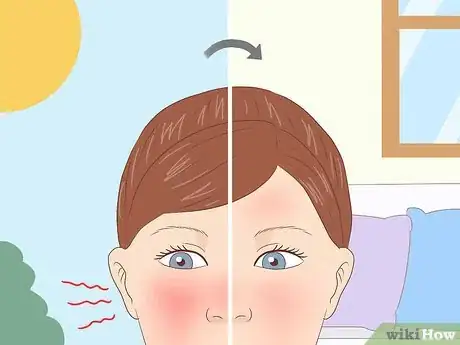
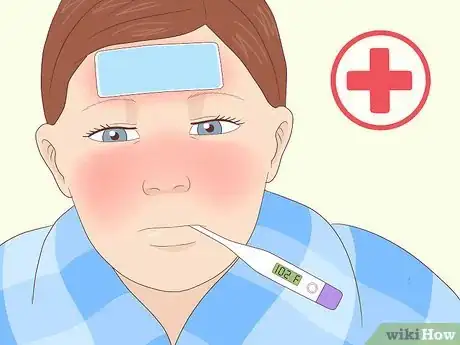
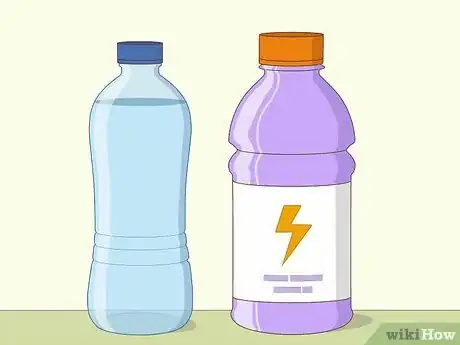
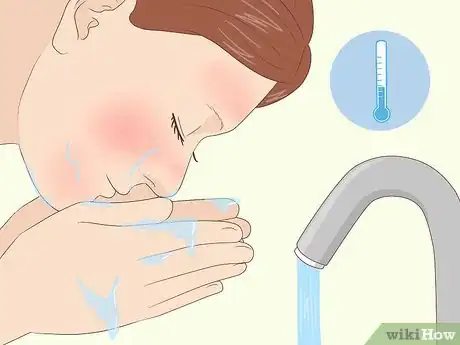
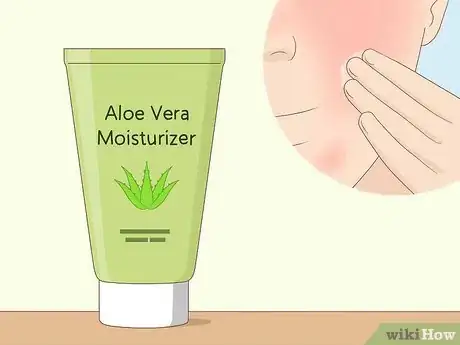

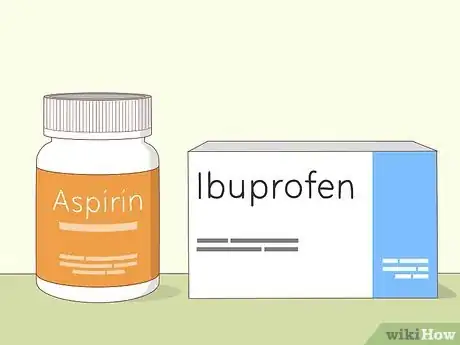
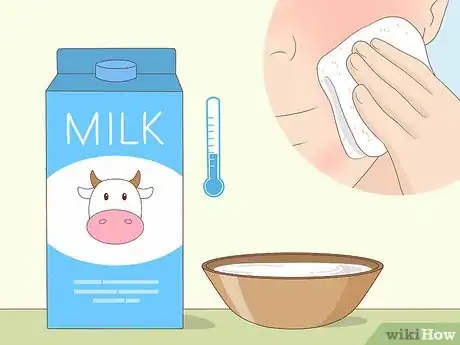

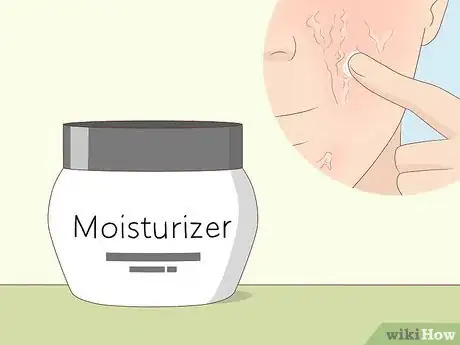
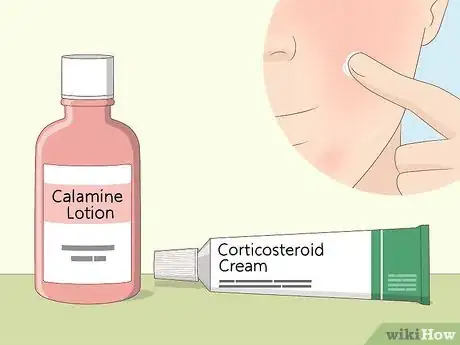
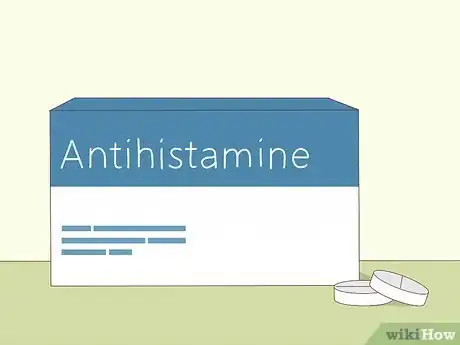
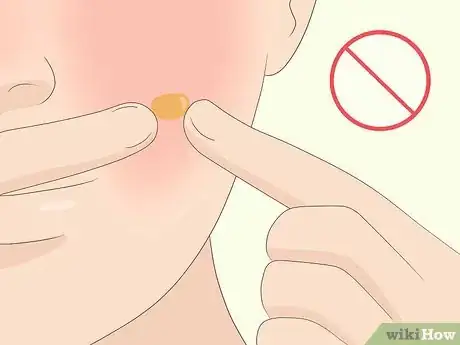
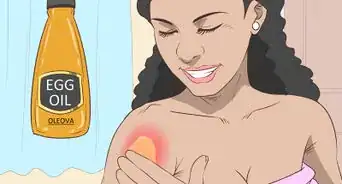


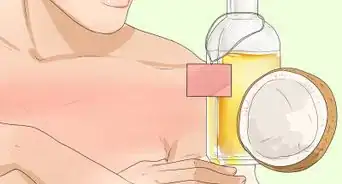
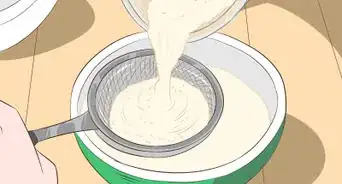
-Step-11-Version-2.webp)


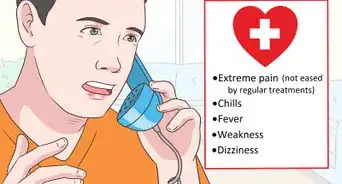
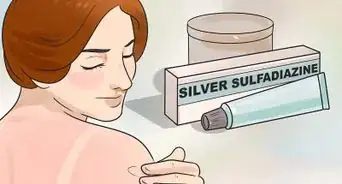
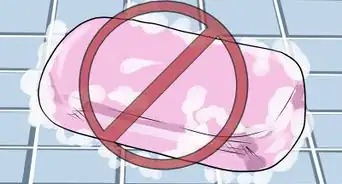
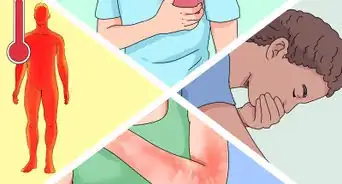
-Step-10.webp)
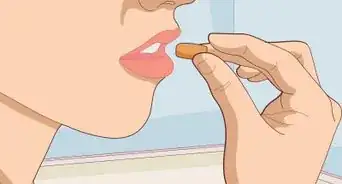









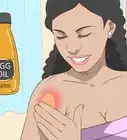






































Medical Disclaimer
The content of this article is not intended to be a substitute for professional medical advice, examination, diagnosis, or treatment. You should always contact your doctor or other qualified healthcare professional before starting, changing, or stopping any kind of health treatment.
Read More...